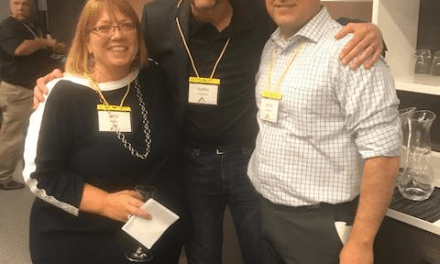The American Cochlear Implant (ACI) Alliance—a nonprofit organization dedicated to eliminating barriers to cochlear implantation—will sponsor its annual Clinical Research conference, which is designed to provide opportunities for physicians, clinicians, scientists, and educators to share information, the ACI Alliance announced.
The CI2018 Emerging Issues Symposium (CI2018) call for abstracts is now open!
The deadline to submit abstracts is Tuesday, October 17, 2017 at 5:00 PM EST. Please be advised that there will be no extensions to this deadline date, so plan ahead!
ACI Alliance encourages submission of scientific contributions for presentation at the meeting. The program will include podium and poster presentation presenting research on cochlear implants (CI) and other implantable technologies in children. All presenters of papers and posters are required to register for CI2018 and are responsible for their own travel expenses, according to ACI.
The CI2018 Review Committee has the responsibility to review and rank all abstracts that are submitted. The abstracts will be considered for both Podium and Poster Presentation. Email notifications will be sent to the corresponding author.
Authors are encouraged to submit research pertaining to the Emerging Issues identified for the CI2018 program. ACI Alliance is also looking for presentations on other cochlear implant topics so submitters should not feel that they must confine themselves to these four topics.
CI2018 DC Emerging Issues:
- Parental Engagement in Pediatric CI Outcomes: Parents and the home routines they create play a central role in a child’s development. Research in pediatric CI outcomes has identified specific ways in which significant caregivers can promote acquisition and growth in spoken language and literacy skills in children with hearing loss. This research also highlights the effectiveness of providing parents and caregivers with specific knowledge and strategies that can be woven into family life to support their child’s communication and literacy development.
- Quality of Life Associated with Cochlear Implantation: Measures of health-related quality of life (QOL) provide unique information about the impact of a disability and its treatment. The NIH, FDA, and CMS have all added QOL as outcome measures for healthcare interventions. Conventional measures of CI outcomes such as auditory and communicative competence (ie, word and sentence recognition) are essential but do not adequately capture the broad impact of deafness on a patient’s physical, behavioral, social, and emotional functioning. A poor correlation between self-report and such typically measured outcomes represents a significant gap in how we assess CIs in adults, which impairs clinicians’ ability to comprehensively quantify CI benefits, preoperatively counsel patients on CI expectations, and provide intervention in areas not related to communication. The session will examine the use of QOL instruments to allow direct input from the CI population and families regarding CI benefits on an individual’s daily functioning, beyond speech understanding.
- Cochlear Implant Practice Management: Maximizing Value for Optimal Delivery of Care: As indications for cochlear implantation continue to expand, constraints in serving patients at already busy cochlear implant centers will worsen. Some centers have instituted innovative practices to optimize efficiency in delivering clinical services. This session will examine techniques and technologies already in place as well as possible future innovations that could improve efficiency and value for CI centers and patients. Such innovations include telehealth in the evaluation, pre-operative, and post-operative elements of CI; in-center programming efficiencies; outsourced audiology services; and industry utilization. Patients may benefit from satellite centers in smaller cities or rural areas that are now poorly served. Existing and needed research to guide adoption and use of such innovative practices will be reviewed.
- CI Candidacy in 2018: When cochlear implants were first introduced, candidacy determination was a straightforward process: patients were expected to have bilateral profound deafness and demonstrate no benefit from hearing aids, which often meant 0% speech recognition. As technology has improved, CI candidacy has expanded to include patients with greater amounts of residual hearing and greater speech recognition skills. This session will review recent changes in CI Candidacy, including the use of contemporary measures to evaluate traditional candidates, medical/surgical considerations when determining CI Candidacy, the role that age and cognition play in candidacy considerations, and expansion of candidacy to include patients with SSD and asymmetric hearing losses.
CI2018 DC Preliminary Schedule
|






Good morning, i wanted to know how much does it cost to assist ACI from 7 to 10 march. Thank you